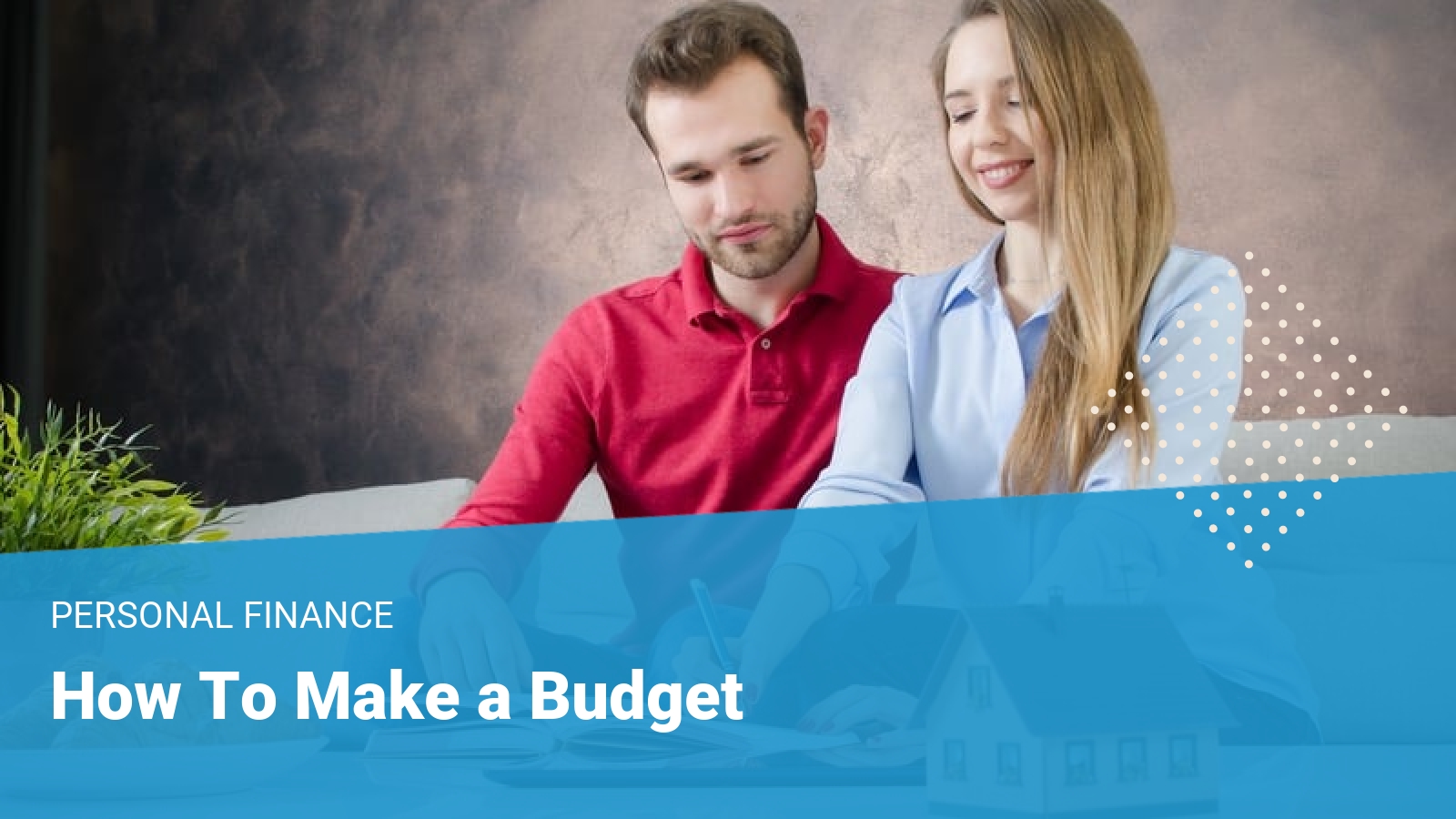Creating your first budget can be an overwhelming experience.
In fact, nearly 80% of American families have a working monthly budget. Budgeting can progressively help you achieve your goals and get out of debt.
Budget-making has also been linked to building wealth – but what exactly is a budget and how do you create one?
Budgeting is the process of creating a workable and solid written plan on how you will spend your money each month. Let’s take a closer look at how to create a budget.
Tip: Creating a budget simply means balancing your expenses with your income to make sure you will have enough money each month.
Why Is Creating a Budget so Important?
A budget ensures you always have enough money for the things you need. This is true even if you have a low income since you will prioritize your spending.
When you have a budget, your focus will only be on the most important things.
Mastering how to budget has another huge advantage. It will prevent you from accumulating debt or help you work your way out of it.
A recent survey conducted shows that 56% of Gen Zers and 59% of millennials were willing to go into credit card debt to celebrate the end of the pandemic.
What is Budget Forecasting and Planning?
Once you draft your first budget plan, you can start using it to keep your personal finances on track.
You may decide to map out your budget for a couple of months to a year or more.
This puts you in a better position to forecast which months may have tight finances and when you are likely to have extra money.
You can then work on reasonable steps to even out the highs and lows of your finances. Budget planning provides financial clarity which helps you have a more manageable and pleasant life.
Tip: Budget forecasting also allows you to better predict how much money you can save for a vacation, a new vehicle, or a new home.
It can also be a practical way to save up money for emergencies and home renovations.
A realistic budget helps with your long-term financial planning. You can eventually achieve goals such as starting your own business or retiring.
How to Create a Budget
A sound budget is the starting point of every great financial plan. These steps will help you make your financial goals a reality.
Calculate Expenses
Review your bank statements and receipts to know exactly how much you are spending each month. Some periodic expenses, such as insurance payments, can be tricky. To get an accurate picture, calculate the average expenditure for 6 to 12 months.
Determine Your Income
Once you better understand the amount of money that is needed to cover your expenses, determine your income. Any extra funds such as cash gifts and sale of items can be added up to the regular salary. Other income sources may include child support and rental income.
Set Savings Goals
Subtract your monthly expenses from your income. If you are making more than the total expenditures, use this extra amount to pay off debt or bolster your savings. However, if the expenditures exceed the current income, it’s time to roll up your sleeves. You can review your expenses to do some cost-cutting and look at ways to increase your income.
Record Spending and Track Progress
Recording all your expenses and income will ensure that you stay on top of your budget. It will be easier to resist careless spending. Furthermore, it is satisfying and motivating when you have met a savings goal.
Be Realistic
Stick to your budget and know your limits. It is okay to break the budget occasionally as long as you can get back on track quickly.
Importance of a Personal Budget
A personal budget is an itemized summary of the income and expenses of a household for a period of time.
The two categories of monthly household expenses include:
- Fixed
- Variable
Fixed expenses are those that are necessary as a way of your living and stay relatively the same each month. They include trash pickup, internet service, and mortgage.
Variable expenses are bound to change from month to month. They include items such as gasoline, eating out, and gifts.
Others may feel they are too poor to budget or they may simply have other excuses. On the contrary, knowing how to budget money is essential for people from all walks of life.
Here are six ways how making a budget can help:
- Budgeting stops overspending: Failing to plan is planning to fail. The lack of a plan almost always results in overspending. This often leads to debt which limits your spending power in the future. Overspending can be significantly reduced when your paycheck is already planned.
- Budgeting helps you reach your goals: Financial goals will vary, ranging from getting out of debt to starting a business. Your budget helps you prioritize your spending and ensure that you achieve these goals.
- Making a budget helps you save money: Once you have assigned your money to do certain things, you will automatically save or invest each month. This is a stepping stone towards building wealth, which is what financial freedom is all about.
- It helps you stop worrying: A personal budget is not about restricting your happiness. A personal budget is about opening up opportunities for using money and gaining more control of your life. You decide how much you will spend in each category and know where your money is being spent. It gives you a plan that is easy to follow and prepares you for the future.
- It helps you be flexible: Once you know how to budget, you can adjust the amount spent in each category every month. Thus, you can adjust as needed so that you do not overspend and are not forced to touch the money set aside for savings.
- Budgeting is simple: Managing money gets a whole lot easier when you can track all your expenditures and savings.
Do You Know the 50/30/20 Rule?
One personal budget approach recommended by experts is the 50/30/20 rule. The idea is simple and straightforward and includes the following:
- Spend 50% of your income on necessities
- Keep your wants no more than 30% of your income
- 20% of income should be earmarked for savings and debt repayment
Your needs, which should be 50% of your income after your tax deduction, include basic utilities, transportation, insurance, groceries, and housing.
No more than 30% of your money should be spent on things you ‘want’. If your essentials pass the 50% mark, you may have to revisit your wants.
Sometimes differentiating wants from needs can be difficult. The best way to think of this is that needs are essential for survival while wants include dinners out, travel, and entertainment or extracurriculars.
Examples of adjusting your “wants” spending may include choosing a more affordable cell phone plan, passing on or choosing a cheaper vacation option, or shopping sale items at the grocery store.
20% of your savings should be for financial goals. This could start with an emergency fund for unexpected events. You may start with a goal of saving $500 to cover small emergencies.
This is also a good time to work on getting rid of your toxic debt, such as high-interest credit cards. You can then save for retirement.
Personal budgeting using the 50/30/20 rule will help you better control your finances and empower you to become more well off financially.
While the proportions do not have to be exact, this system does provide a framework to help you get your finances on track.
The Envelope Budgeting System—How it Works
This is a very straightforward approach that requires discipline.
Get various envelopes and write the category on top of each.
After each paycheck, insert the budgeted amount of cash into the envelopes (or into a bank account for better security). Here is where it gets interesting. Once you have spent all the available cash in an expense category, you cannot spend any more in that category.
If after all expenditures you still have some money left in the envelopes, use it to pay your debts or put it into savings.
Advantages of Envelope Budgeting
Although the system may appear to be a bit strict, here are some advantages:
- It works because it offers finite resources for each category.
- It forces you to be disciplined when it comes to handling expenses.
- There are no overdraft charges, as there is no bank involved.
- There is less wasteful spending because you think through every purchase.
- Less a chance of missing a payment since all payments come from money ‘in hand’.
Making a budget may seem overwhelming at first, but it is straightforward and provides the foundation for long-term financial security.
While we discussed two budgeting strategies above, there are numerous other methods as well. The important thing is to create a budget that will work for you!
Sources
- CNN Moneyaccessed on August 12, 2022


